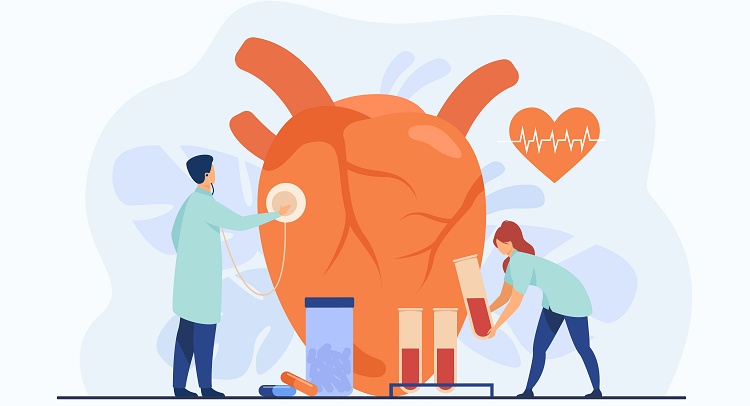According to the Centers for Disease Control and Prevention, nearly 40 percent of American adults have high cholesterol. Here are seven things you should know about cholesterol:
- Our bodies make cholesterol. Cholesterol is a waxy substance we make in our liver. Cholesterol is useful in our bodies; we make hormones with it. The outside coatings of our cells are also made with it.
- There is ‘good’ and ‘bad’ cholesterol. LDL, or low-density lipoprotein, is generally considered the ‘bad’ cholesterol; it tends to accumulate in our arteries and cause blockage diseases like heart attacks and strokes. HDL, or high-density lipoprotein, is generally considered the ‘good’ cholesterol; it collects and cleans up extra LDL from throughout the body and carries it to the liver so our bodies can dispose of it.
- Animal-based foods contain cholesterol. Anything that makes its own cholesterol will contain cholesterol.
- But that doesn’t mean all animal-based foods cause high cholesterol levels in our bodies. Long demonized, eggs have not shown a significant impact on our bodies’ cholesterol levels. Studies have shown that eating saturated fat will keep our body from eliminating LDL cholesterol. Saturated fats are in animal foods and tropical oils, such as coconut oil.
- There are no warning signs for high cholesterol. The only way to know if you have high cholesterol is with a blood test.
- Dietary changes can improve your cholesterol level and will improve your overall health. Foods high in soluble fiber such as whole grains (quinoa, barley), lean proteins (kidney and black beans), healthy fats (flax seeds, avocado), vegetables (carrots, green beans), fruits and starchy vegetables (sweet potatoes) can improve your cholesterol level. Working with a registered dietitian can help you develop a heart-healthy eating plan.
- Exercise can also improve your cholesterol level and will improve your overall health. Find an exercise that you enjoy and modify it for any physical limitations. If you are currently not exercising, start slowly and build up to five 30-minute sessions of sustained aerobic activity per week.
Want to know more about cholesterol and your health? Make an appointment with your primary care provider today.
Call Care Connect today at 410-871-7000 if you need help finding a primary care provider, or visit the Hello Brave directory, which gives you easy online access to search for and schedule appointments with LifeBridge Health’s expert providers.
Additional Resources:
LDL & HDL: Good & Bad Cholesterol | cdc.gov
What doctors wish patients knew about high cholesterol | American Medical Association (ama-assn.org)
Cholesterol | American Heart Association
Physical Activity – National Lipid Association
Adding Soluble Fiber to Lower Your Cholesterol – National Lipid Association
